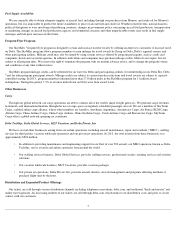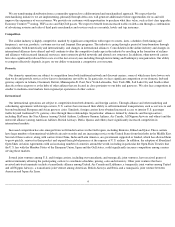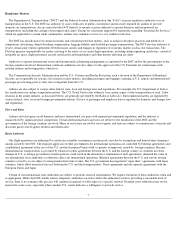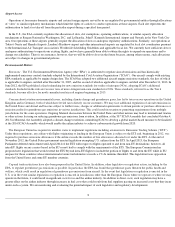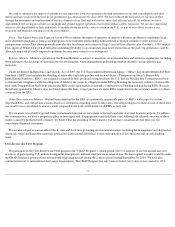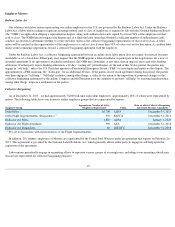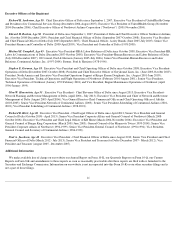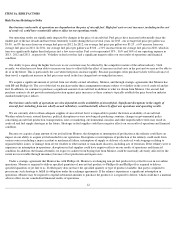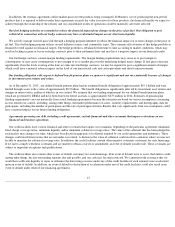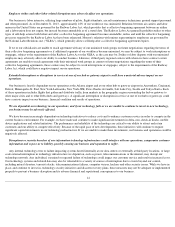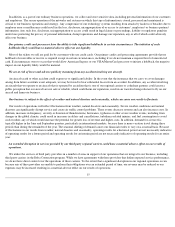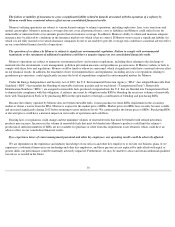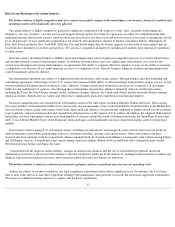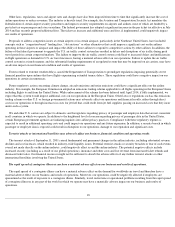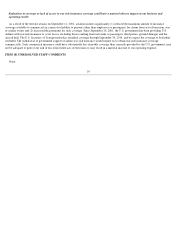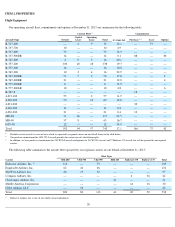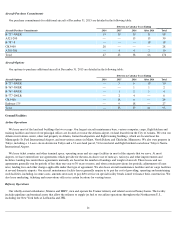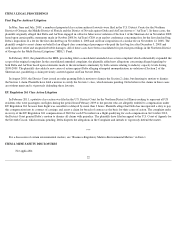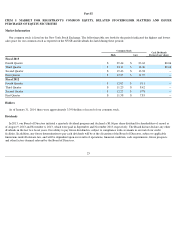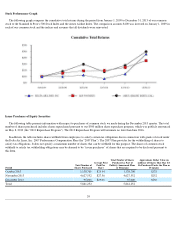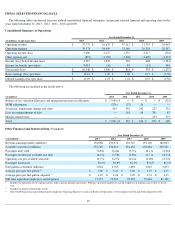Delta Airlines 2013 Annual Report Download - page 21
Download and view the complete annual report
Please find page 21 of the 2013 Delta Airlines annual report below. You can navigate through the pages in the report by either clicking on the pages listed below, or by using the keyword search tool below to find specific information within the annual report.
In addition, as a part of our ordinary business operations, we collect and store sensitive data, including personal information of our customers
and employees. The secure operation of the networks and systems on which this type of information is stored, processed and maintained is
critical to our business operations and strategy. Any compromise of our technology systems resulting from attacks by hackers or breaches due to
employee error or malfeasance could result in the loss, disclosure, misappropriation of or access to customers', employees' or business partners'
information. Any such loss, disclosure, misappropriation or access could result in legal claims or proceedings, liability or regulatory penalties
under laws protecting the privacy of personal information, disrupt operations and damage our reputation, any or all of which could adversely
affect our business.
Our primary credit card processors have the ability to take significant holdbacks in certain circumstances. The initiation of such
holdbacks likely would have a material adverse effect on our liquidity.
Most of the tickets we sell are paid for by customers who use credit cards. Our primary credit card processing agreements provide that no
holdback of receivables or reserve is required except in certain circumstances, including if we do not maintain a required level of unrestricted
cash. If circumstances were to occur that would allow American Express or our VISA/MasterCard processor to initiate a holdback, the negative
impact on our liquidity likely would be material.
We are at risk of losses and adverse publicity stemming from any accident involving our aircraft.
An aircraft crash or other accident could expose us to significant liability. In the event that the insurance that we carry to cover damages
arising from future accidents is not adequate, we may be forced to bear substantial losses from an accident. In addition, any accident involving
an aircraft that we operate or an aircraft that is operated by an airline that is one of our regional carriers or codeshare partners could create a
public perception that our aircraft are not safe or reliable, which could harm our reputation, result in air travelers being reluctant to fly on our
aircraft and harm our business.
Our business is subject to the effects of weather and natural disasters and seasonality, which can cause our results to fluctuate.
Our results of operations will reflect fluctuations from weather, natural disasters and seasonality. Severe weather conditions and natural
disasters can significantly disrupt service and create air traffic control problems. These events decrease revenue and can also increase costs. In
addition, increases in frequency, severity or duration of thunderstorms, hurricanes, typhoons or other severe weather events, including from
changes in the global climate, could result in increases in delays and cancellations, turbulence-related injuries, and fuel consumption to avoid
such weather, any of which would increase the potential for greater loss of revenue and higher costs. In addition, demand for air travel is
typically higher in the June and September quarters, particularly in international markets, because there is more vacation travel during these
periods than during the remainder of the year. The seasonal shifting of demand causes our financial results to vary on a seasonal basis. Because
of fluctuations in our results from weather, natural disasters and seasonality, operating results for a historical period are not necessarily indicative
of operating results for a future period and operating results for an interim period are not necessarily indicative of operating results for an entire
year.
An extended disruption in services provided by our third party regional carriers could have a material adverse effect on our results of
operations.
We utilize the services of third party providers in a number of areas in support of our operations that are integral to our business, including
third party carriers in the Delta Connection program. While we have agreements with these providers that define expected service performance,
we do not have direct control over the operations of these carriers. To the extent that a significant disruption in our regional operations occurs
because any of these providers are unable to perform their obligations over an extended period of time, our revenue may be reduced or our
expenses may be increased resulting in a material adverse effect on our results of operations.
15


